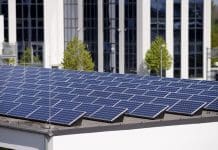The Science Based Targets Initiative (SBTI) have approved Laing O’Rourke’s emission targets for the near- and long-term
All of Laing O’Rourke’s new emission targets are based on a 2023 baseline year, and the new commitments are now more strongly aligned with the Paris Agreement.
Hitting emission targets will save 225,000CO2e by 2030
The new targets include:
- A 42% reduction in Scope 1 and Scope 2 emissions by 2030
- A 25% reduction in Scope 3 emissions by 2030
- Be entirely net zero by 2050
Achieving these will save 865,000CO2e by 2050 across the whole Laing O’Rourke Group.
The targets are more ambitious than the Group’s previous targets and crack down harder as a result, especially on Scope 3 emissions, which make up 96% of the Group’s carbon footprint.
Last year, Laing O’Rourke promised a switch to low-carbon concrete as part of their original emission targets.
With the new targets, the Group will follow their carbon reduction programme, which includes a 100% switch to renewable electricity on all work sites, a switch from diesel to bio-diesel in plant equipment, and switching to electric and hybrid-power vehicles.
Further action will be taken with suppliers to switch to low-carbon materials and develop carbon-efficient designs in projects.
“The built environment is a large contributor to global emissions”
Madeleina Loughrey-Grant, group director of Legal, Procurement (EU) and Sustainability, said: “I am extremely proud of what our business has achieved so far. We remain committed to constantly reviewing our strategy to ensure we continue to challenge ourselves to push the boundaries of what’s possible in our industry.
“The validation of our emission reduction targets by SBTi demonstrates our dedication to aligning our climate strategy with science and global best practice. It’s important to us that we have undergone the rigour of having our targets independently reviewed and verified by SBTi, an organisation that holds considerable credibility internationally. We’ve committed to being a net zero company by 2050, and our science-based targets give us a strong foundation by which to measure and accelerate our progress towards this goal.
“Emissions reduction is an imperative for our business. The built environment is a large contributor to global emissions2, and as a constructor we have a responsibility to drive decarbonisation progress across our operations and supply chain. As we do this, we continue to be guided by our purpose, to push the boundaries of what’s possible, in service of humanity.”














